Cities: Skylines CEO: We're not changing traffic (but natural disasters would be cool)
Developing tunnel vision
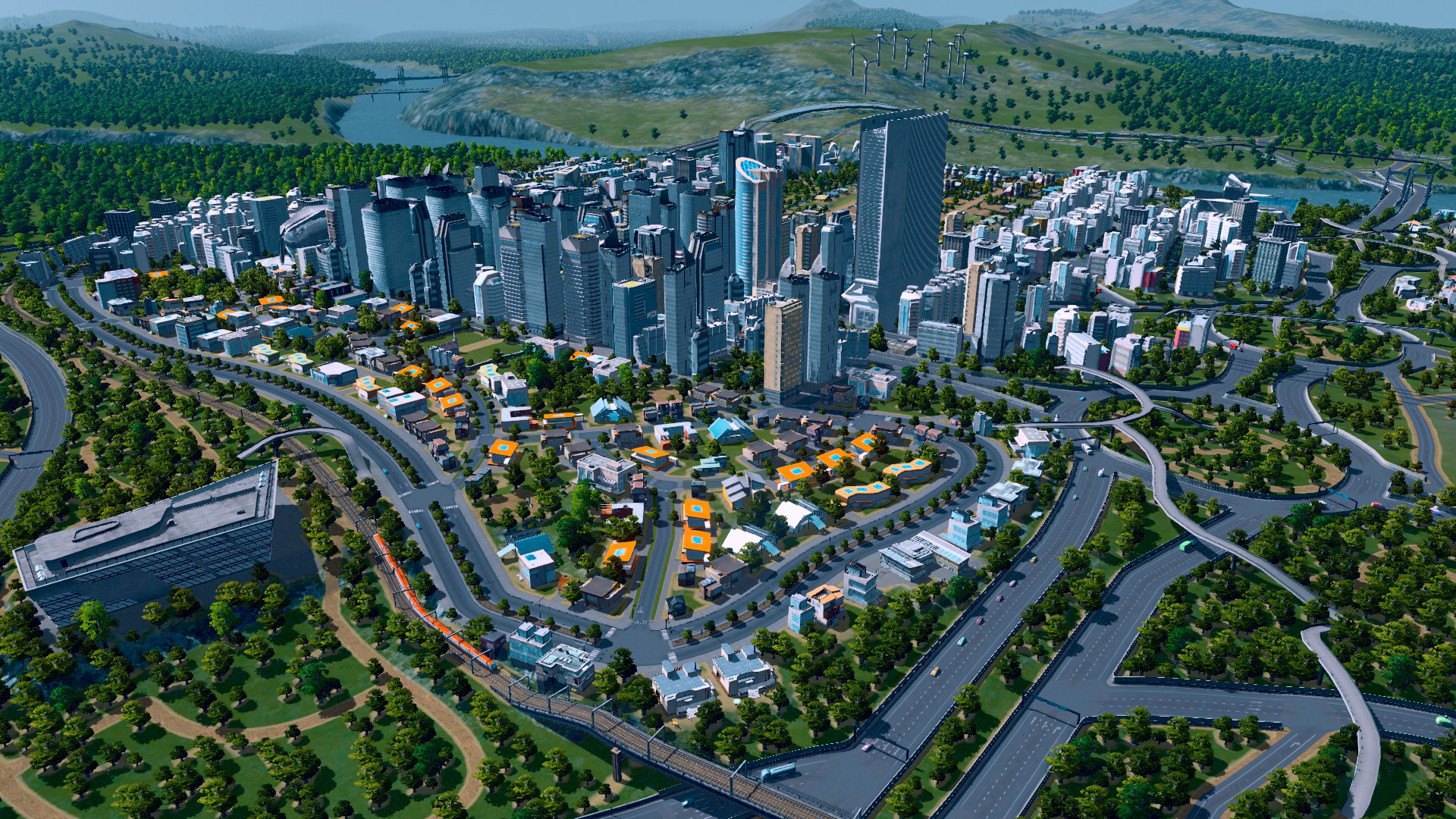
Sign up for breaking news, reviews, opinion, top tech deals, and more.
You are now subscribed
Your newsletter sign-up was successful
Everybody knows that a good mayor never sleeps, especially if they're in charge of a sprawling Cities: Skylines metropolis (fires don't put themselves out, you know). With an ever expanding library of mods to play with (and DLC on the horizon) Colossal Order's city builder lets you sink more hours into it than ever before.
Smashing the 1 million sales mark one month after its release, Skylines has seen the Finland-based studio behind it grow from nine to fourteen people while doubling the number of programmers working on it - to a dizzying two.
After managing to pin down company CEO Mariina Hallikainen at Unity Unite 2015, TechRadar received some insight into the possibility of missions (including natural disasters and zombies), the future of its traffic system, and why those who torture their digital city dwellers are bad, bad people.
TechRadar: One million sales after three months. Did you expect that?
Mariina Hallikainen: To be honest I was very surprised because we're a very small company, and Paradox isn't a massive publisher. If you think about the budgets for marketing and the game itself, the ability we have is amazing. There's almost this blurred line between what is creating and what is playing - and people have been sharing their creations with the world.
Steam Workshop has over 45,000 items, which is mind-blowing. It's definitely something we didn't see happening so fast. I was hoping that Cities: Skylines might be the game that sells over a million copies in three years or something, and it happened in just over a month. It's very exciting.
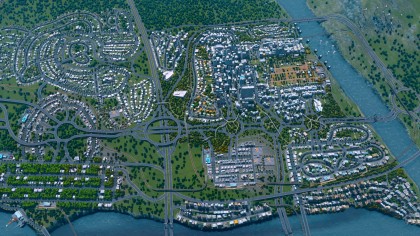
TR: People tend to pit Skylines against SimCity 2013 - did you do any research into what gamers might want that was missing in SimCity?
Sign up for breaking news, reviews, opinion, top tech deals, and more.
MH: It's a funny story because we've been pitching a city builder for many years. It was impossible to make one at the beginning with only five people and no track record, so in 2009 we started to focus on creating a smaller-scope game which became Cities In Motion, followed by Cities In Motion 2 that came out in 2013. By the time we had the technology and a skilled team needed to create a city builder, SimCity 2013 was announced. We thought they were going to build this fantastic game and leave no room for competition!
TR: Did SimCity change how you approached making Cities: Skylines?
MH: We were quite devastated and wondered what type of sequel we were going to make to Cities In Motion 2, but that all changed after SimCity's launch. We began to notice that there might be room for another city builder, and our publisher was like "your idea's fantastic, let's do this!".
We had the vision for the game before SimCity, so we stuck with it and didn't research what they were doing too much. We wanted big maps and to fully focus on single player because we didn't have the resources to make big fancy features, so it was driven by what we always wanted to do but could also pull off.
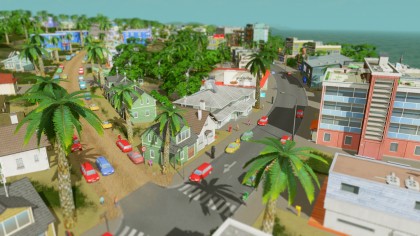
TR: You guys must have been huge Theme Park, Roller Coaster: Tycoon, and SimCity fans back in the day...
MH: Yeah! It's funny because I personally have no industry background. I was a student who was asked to join the company to handle the business side, but I was really into simulation games. The first time I tried the Cities In Motion demo, I was like "thank God I like this game! It's going to be so much easier to sell because I enjoy it."
I used to play Theme Park back in the '90s when I was a small girl, so Cities In Motion brought back so many memories. I'd completely stopped playing games during high school and uni - I'm not really a gamer. But simulation games provided such a familiar and lovely feeling. The team have been playing Transport Tycoon, Traffic Giant, SimCity games and older ones - Ceasar, for example.
TR: What were the biggest lessons you learned creating the two Cities In Motion games that helped with Cities: Skylines?
MH: One was how to figure out performance and memory issues when having big maps because we already had them in Cities In Motion 2. And then there was modding, which didn't work in Cities In Motion 1 because we had no idea what we were doing in terms of making mods meaningful, which was the same for the second game.
We had to figure out how to make it so that people could mod Cities: Skylines, which was something people wanted to do from the beginning. Players are so skilled that they've actually disregarded the modding API to do super cool stuff we had no idea they could do.
TR: Are there any mods that stand out for you?
MH: The Borderlands one. A guy had plans to make the buildings graphics very specific with outlines, but Unity behaved in a weird way. He posted a screenshot that showed some pink glowing things where all the lines were electric and crazy! It looked super cool, and he eventually got it working the way he intended. Modders have also made helicopters that you can fly around the city.
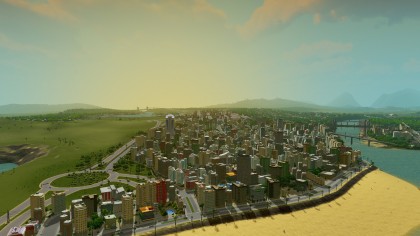
TR: In what ways can somebody building a city in Skylines learn something about themselves?
MH: If they drown everybody in pools then they are terrible people!
TR: Traffic has been highlighted as one of the more problematic elements of the game, with cars getting stuck in single lanes and the whole thing really having a negative impact on cities. Are there any plans to change the way traffic works in the game?
MH: There's no way we're going to change it because the traffic behaves in that way due to computing power. If a car is going somewhere and there's a jam we can't recalculate the path for it to go a different way because it would cause massive performance issues, and we still need to have the big maps, so it basically comes down to choices.
It's something we're looking to improve and if we get the chance we'll try to give the player more control over it, but it's not going to be in the way that people have suggested where cars will change lanes. That wouldn't be difficult to program, but the effect of it would be devastating. I hope that people don't feel that traffic is so challenging that the game isn't fun anymore because that's the worst thing that could happen.
TR: Are there any tips you can give people to alleviate traffic issues - such as how they approach designing roads?
MH: You can create pretty cool systems that are likely to alleviate the traffic. First of all, don't place too many crossings down so that vehicles get stuck in traffic lights. Underpasses and overpasses are very clever ways of handling crossings, along with tunnels, which have now been implemented.
Also think the placing of zones; for example, trucks will need to go industrial areas so don't make them start in residential areas where there's already traffic. It's just a case of figuring out how the city will grow, and doing it in a way so that it won't cause massive lots of traffic.
TR: Missions and random events such as natural disasters would be a cool addition, are there any plans for that or will you leave it up to modders?
MH: We want to make things that are really grand and big, and we're not sure how easy natural disasters would be for modders to do. To have developers working on big features like that would be beneficial for all Skylines players because we need to remember that the majority of players don't use mods. We don't have plans to work on natural disasters yet, but it would be cool to have because we already have the water system in place.
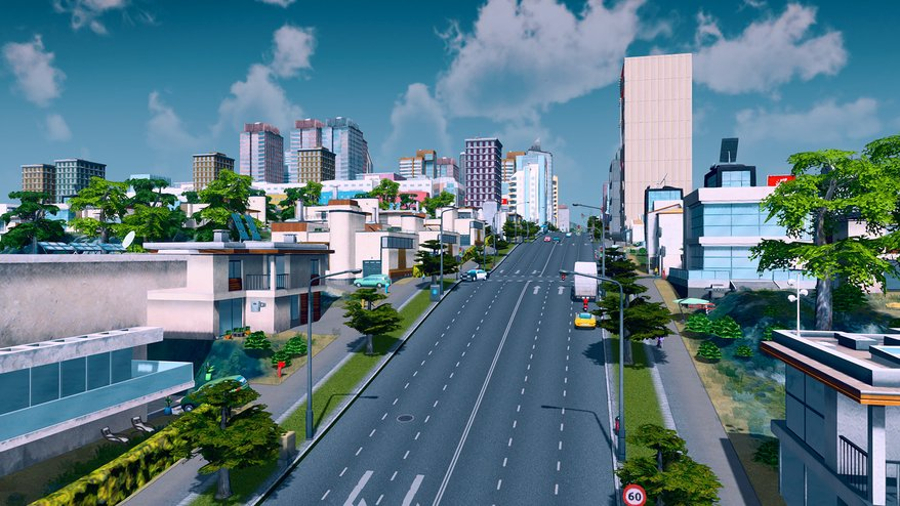
TR: Will you be releasing DLC for the game any time soon?
MH: We'll have a big expansion and release both free and paid updates, all of which we'll be revealing at Gamescom.
TR: Some good ideas for DLC have been suggested in Reddit's Cities: Skylines subreddit. Would you mind giving your opinion on a few of them?
MH: Sure.
TR: A transportation pack: bikes, bike lanes, skaters, trams and above-ground metros.
MH: There are some very cool ideas in there! Above-ground metros is very unlikely to happen. I haven't been thinking about skate parks, but it sounds like fun. I wonder what our animator would come up with - probably something crazy.
TR: Advanced tourism: zoos, theatres and casinos.
MH: Excellent!
TR: Boadwalks, seaside attractions, ferries and higher land value for beachside properties.
MH: Also good ideas.
TR: Amusement parks.
MH: I'm a huge fan of Theme Park, but it would be difficult to make in the game. As a unique building then sure, but I think people would want to actually build them, so it's very unlikely to happen unfortunately.
TR: Zombies. They're cool, right?
MH: Yes! We need zombies. Yes to those.
TR: How long do you plan to keep adding to Skylines before you make a sequel?
MH: As long as we possibly and technically can while people enjoy playing the game. I think the point where we have to move on to a sequel is when the technology is in such a state that it doesn't make any sense to continue working on Cities: Skylines. I'm hoping that will be some years in the future because there's so many ideas we want to add to the game before going there.
TR: Augmented reality could be a good fit for Cities: Skylines - beaming your city onto a table in your front room, for example.
MH: We're super excited about future technologies so we'll be looking at what possibilities are there. It's difficult though - having a small team is always my excuse. In the future we're hoping to grow the company in such a way that we have Cities: Skylines track, with a team working on that, and then have a new team working on some new IPs or different kinds of games.
TR: What's next for Cities: Skylines?
MH: We're going to be focusing on some great expansions and getting free updates out to generally improve the game. We're also very focused on improving the modding tools to allow them to do even cooler stuff.
